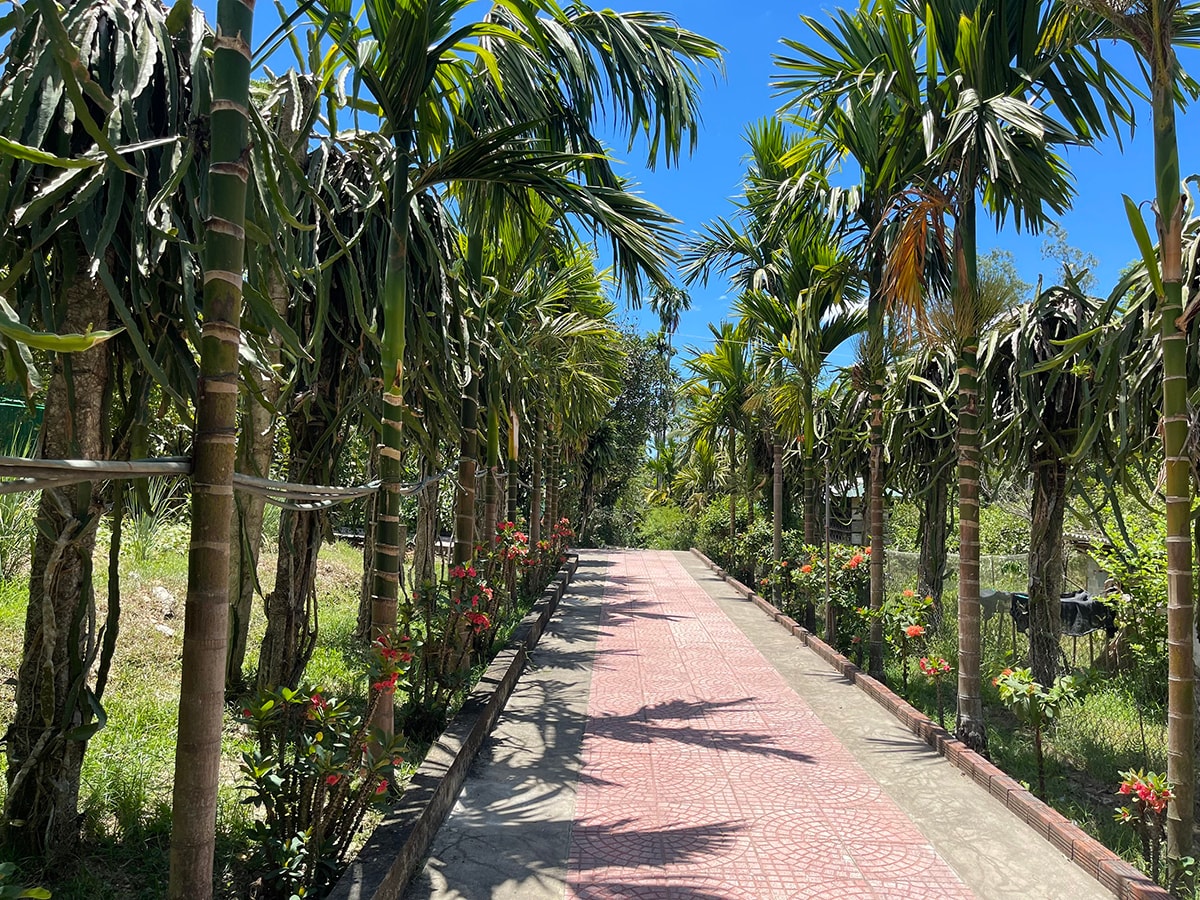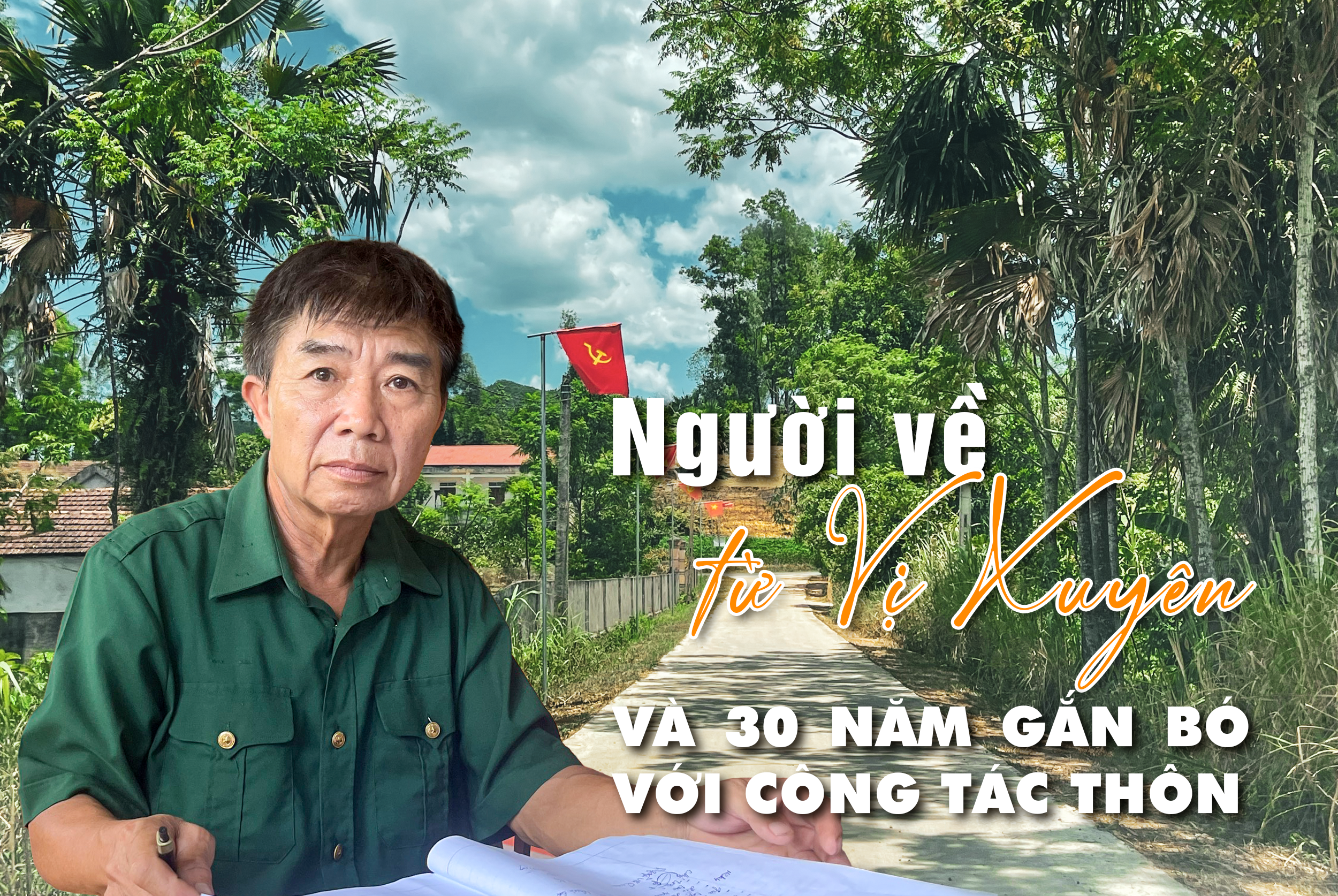


On a scorching hot day in early July, I arrived at Son Thinh village, Thanh Thinh commune (Thanh Chuong) - a peaceful countryside lying across the legendary Ho Chi Minh road to visit Mr. Trinh Xuan Hung's house.
I sat across from Mr. Hung next to a pot of green tea. Behind his slim figure and dark skin was a resolute look that radiated from his eyes, and a bit of humor. He had been mourned on the Vi Xuyen front, but after returning victorious, he threw himself into participating in the activities of the village, from Party Cell Secretary, then Party Cell Secretary and Village Chief, and now, when his strength was exhausted and his legs were tired, he continued to shoulder the responsibility of a Head of the Village Front Work Committee. He half-jokingly said: “If I wasn’t lucky, I would probably be about to enter the 40th anniversary of my death. I was able to return, while so many comrades lay in that “lime kiln of the century”. Well, I’ll do whatever I can for the village.”
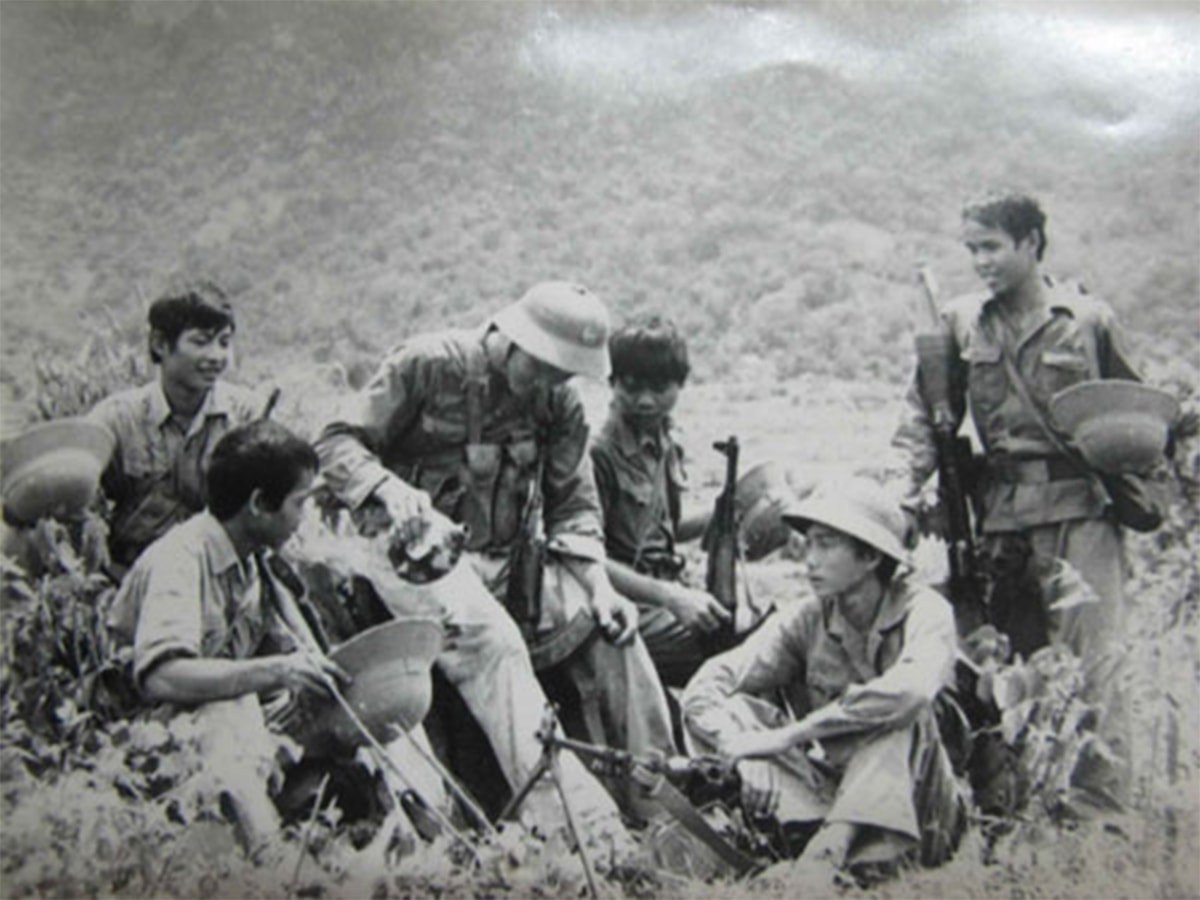
That day, after the 1979 border war, the Chinese expansionist army outwardly announced its withdrawal, but in reality, it was still secretly carrying out aggressive and encroaching schemes. On April 28, 1984, the Chinese army launched a large-scale attack on our country's border in the Vi Xuyen area (Ha Giang), from the high point of 1,509 (the location dividing the two countries' territories before 1979), to the high points of 1,100, 772, 685, to 468 (gradually lower towards our country about 4 to 5km).
At that time, Mr. Hung was the Battalion Commander of Battalion 5, Regiment 153, Division 356, assigned to protect the 685 high point. This high point is located in the west of Thanh Thuy commune, Vi Xuyen district, about 2.5km from the border. This is a rocky mountain consisting of 5 peaks called E1, E2, E3, E4 and E5. At this high point, many fierce battles took place to protect against Chinese invasion from 1984 to 1989.
At that time, the high points 1509, 772, 685 were called by the fierce names "minced meat hill", "meat grinder" or "lime kiln of the century". But for the Vi Xuyen soldiers, once holding their guns firmly in their hands, even though their flesh and bones were crushed, they were still determined to charge forward. The climax was at dawn on July 12, 1984, when we launched the MB84 campaign, mobilizing a large force to attack and regain the high points. However, in this battle, our attacking forces suffered heavy casualties, nearly 600 soldiers of Division 356 - Military Region 2 were sacrificed. Since then, July 12 has become the death anniversary of the Vi Xuyen martyrs, the day when every Vi Xuyen veteran returns to burn incense to remember their comrades.
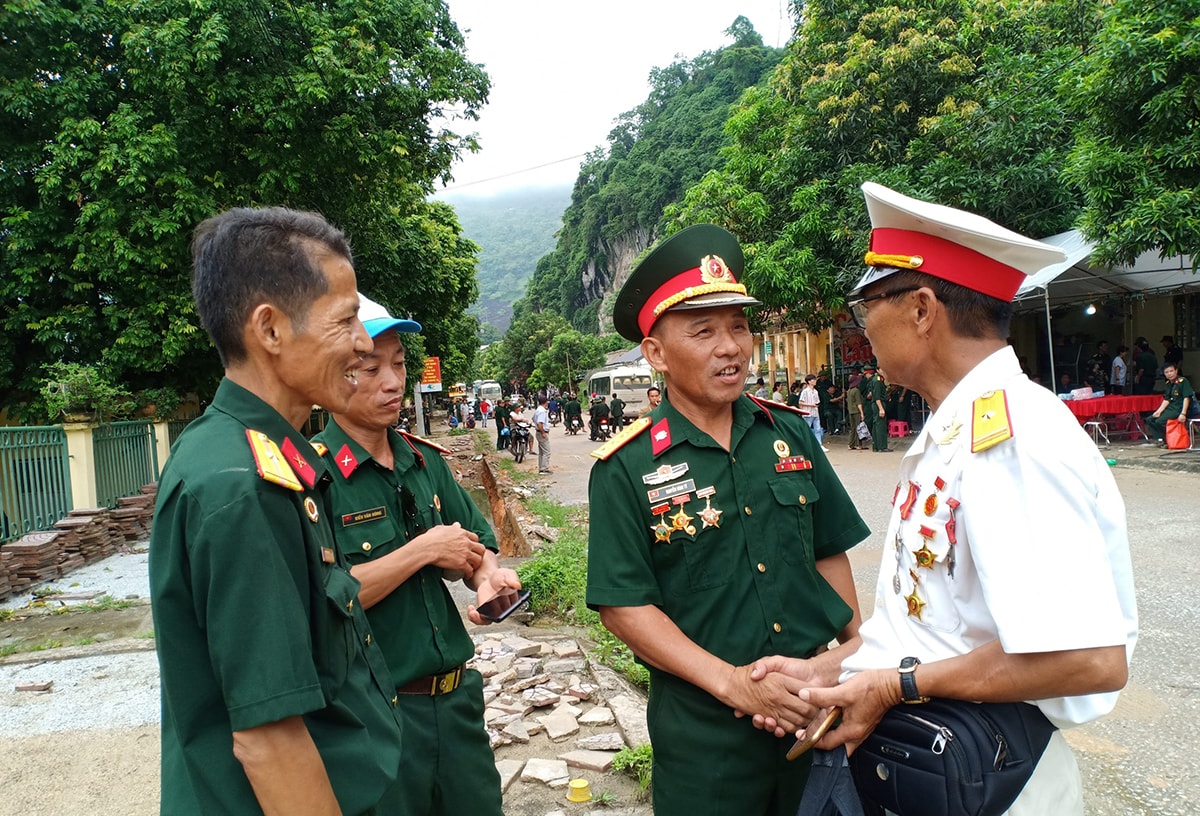
Mr. Hung recalled: “After the unsuccessful MB84 campaign, the stalemate between us and the enemy continued for a long time. In particular, although we tried to retake Hill 685 many times but failed, we discovered that behind the E1 peak of Hill 685 there were many natural caves, including 4 large caves located between 685 and 772, which the enemy had reinforced into a place to shelter troops and gather weapons, both to avoid our firepower and to launch a counterattack when our troops attacked from below. Therefore, the front commander and the 356th Division commander decided to set up a special task force - a suicide squad, to secretly infiltrate and destroy these caves.”
Mr. Hung still remembers clearly the day he received the order to go on a suicide mission, that day was the afternoon of December 17, 1984, just returning from the post to Lang Lo cave (where the command post was located, where the wounded were temporarily cared for, and also where the bodies of the fallen soldiers who had just been brought back from the battlefield were placed), he met a comrade from the same unit, who, upon meeting him, patted him on the shoulder and said with a smile, "I have some news for you, tomorrow you will be sent by the State to...die".
Even though he had been through life and death many times, this time he felt very strange. He couldn’t sleep that night, tossing and turning. “There must be some special mission for the leaders to choose me, no matter what, I must try to complete it” – he thought. The next morning, the official news of his selection as the suicide squad leader came to him, the commanders gave him one day to choose his soldiers, a total of 18 people.
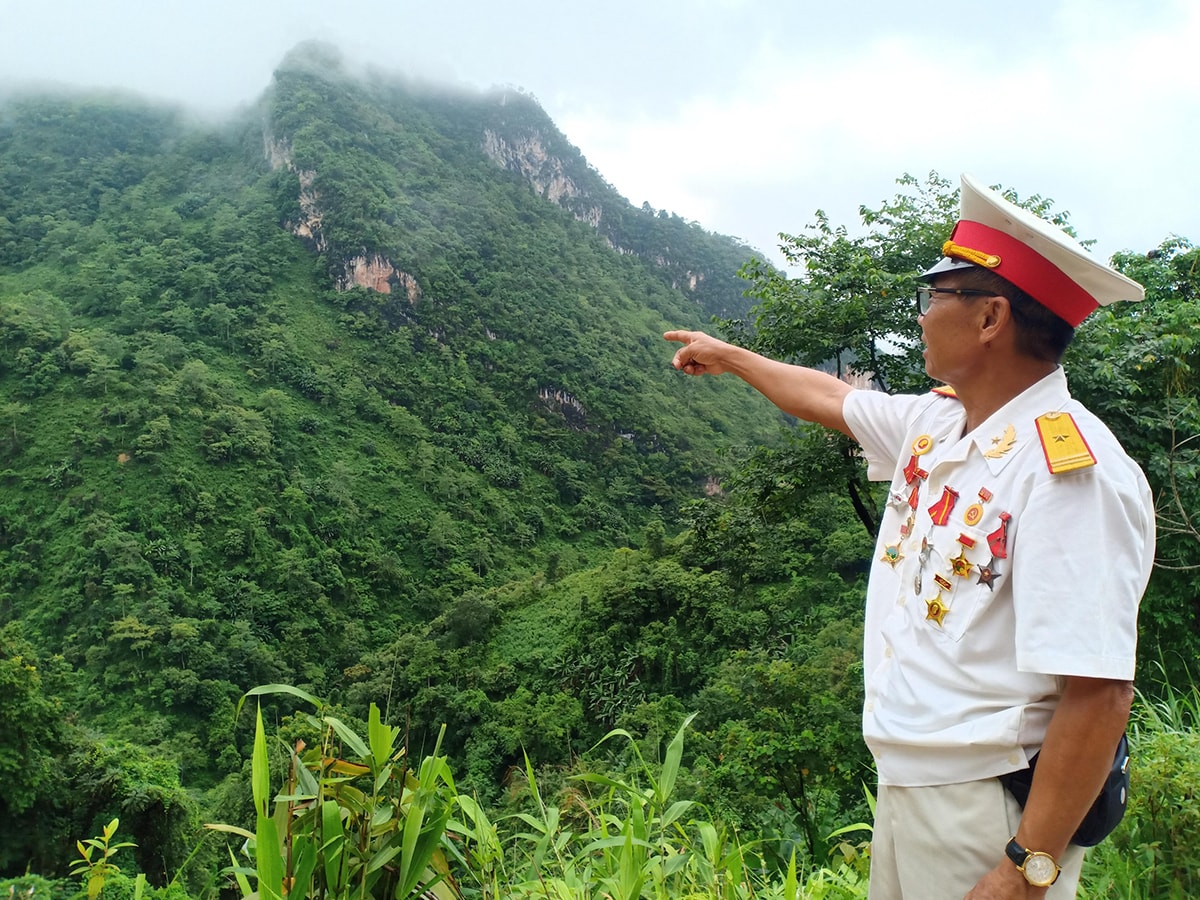
Late afternoon of December 21, 1984, after a live memorial service, the suicide squad, each carrying two ammunition, quickly left Lang Lo cave and set off. The winter afternoon at the border was foggy, under a light drizzle, and the biting cold, they trudged forward. Occasionally, a series of artillery shots echoed off the rocky mountains and then disappeared into thin air. In front of Lang Lo cave, watching the most elite sons of the Country enter the gates of death, everyone was moved to tears.
After many hours of trekking through the forest, by late on December 21, the suicide squad had arrived at their location. At exactly 11 p.m., after our artillery changed lanes, the entire squad simultaneously opened fire and attacked the enemy caves. Deputy Captain Nguyen Quang Do, DKZ Fire Commander, and M72 and B41 opened fire on the largest caves, both destroying the enemy and lighting up the target for the gunmen to see clearly and destroy. Being attacked by surprise, all four enemy shelters were completely destroyed.
Discovering that they were being attacked, enemy artillery rained down crazily on the suicide squad, one soldier was killed on the battlefield. After that suicide battle, everyone returned to their units, some survived, some died. It was not until 35 years later that Mr. Hung met his comrade Luong Tu Lieu (Tinh Gia, Thanh Hoa), who was at that time the Deputy Captain of Company 1, Information Battalion 18, Division 356, and Mr. Nguyen Quang Do (Hoai Duc, Hanoi), who was the Captain of Company 14 - DKZ, Regiment 153, the rest had no news.
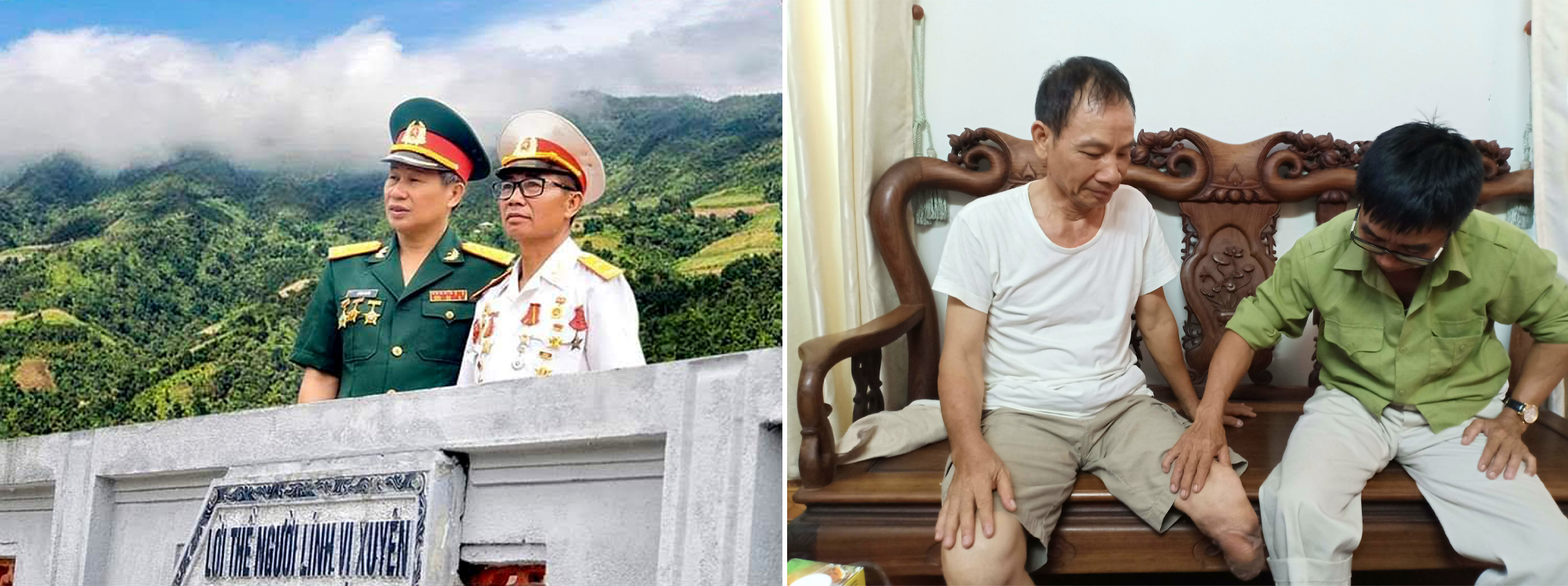

After the war to protect the northern border ended, Mr. Hung continued to be sent to officer training courses and worked in Military Region 2; in 1992, he officially retired and returned to his hometown to live. Returning to his hometown, with the spirit of a soldier of Uncle Ho, he was trusted by the Party Committee, local authorities and people in the village to be appointed as Party Cell Secretary, then Party Cell Secretary and Village Chief and now Head of the Front Work Committee. For more than 30 years, he has continuously devoted his efforts to the village without stopping. Regardless of his position, he has always received the trust of cadres and people in the village and commune because of his dynamism, creativity and dedication to work.
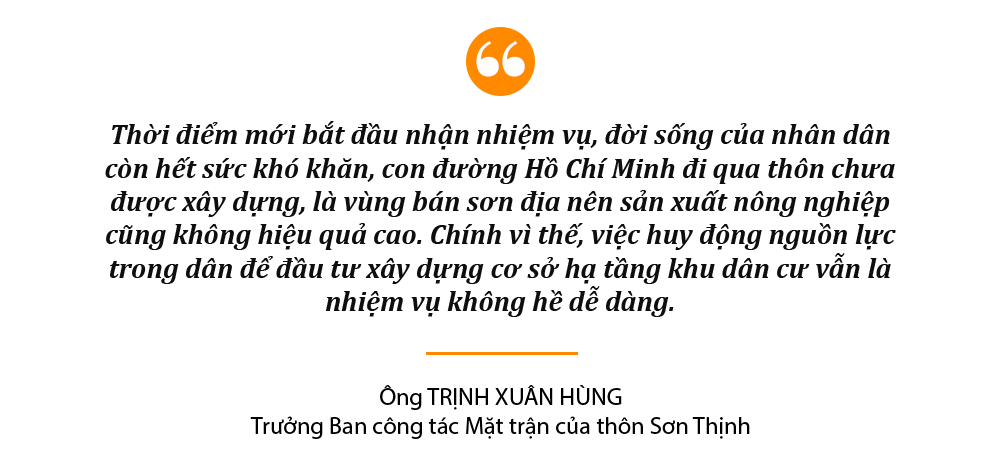
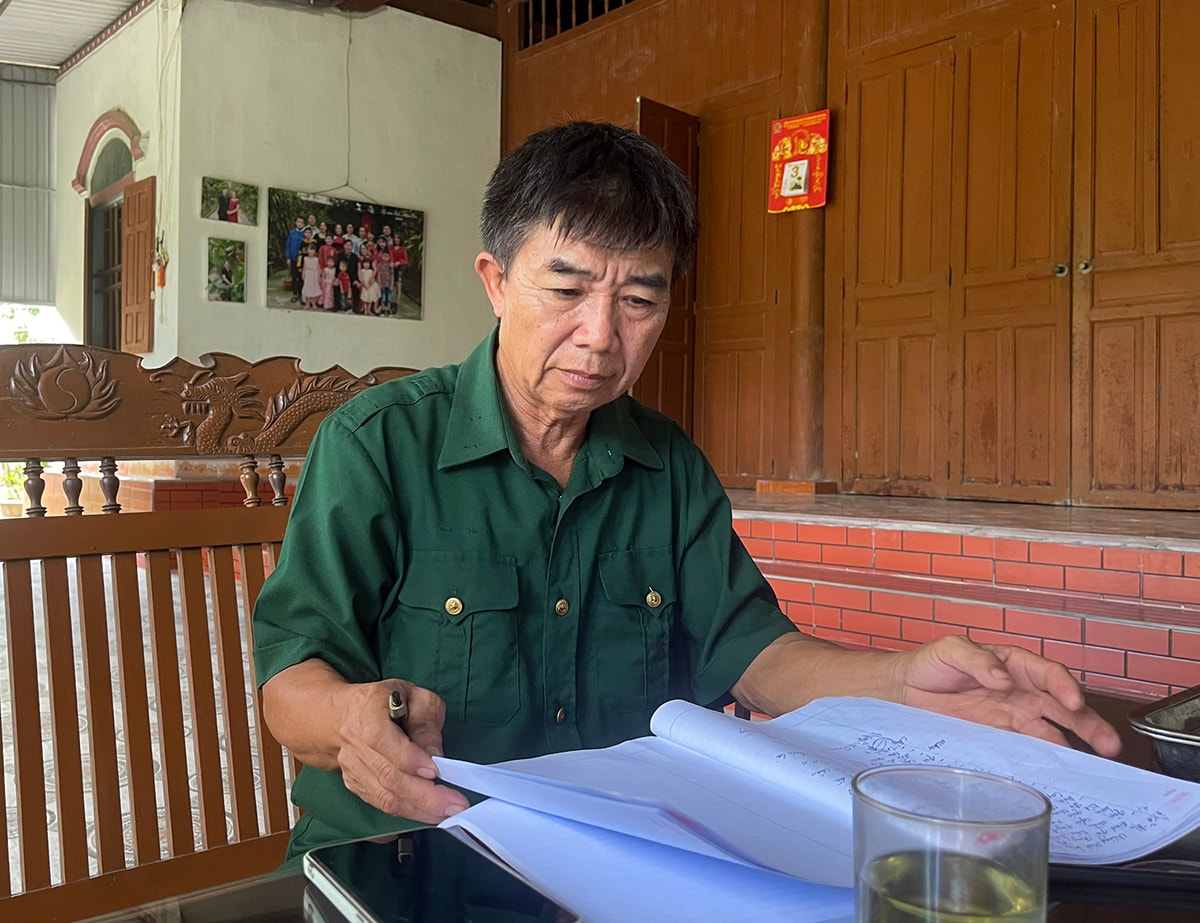
As the Party Cell Secretary, then concurrently the Village Chief, for many consecutive years, Mr. Hung regularly advised and contributed many ideas to work with the village collective to build, issue and implement many Resolutions to change the face of the village as well as improve the material and spiritual life of the people. He personally always worried that in order for the resolution to come into life, each set target must be carefully considered and examined before being issued and especially must be suitable to the actual situation in the locality.
Currently, Son Thinh village has 329 households and 1,670 people. However, 3 years ago, when the merger was implemented according to the general policy of the State, there was a time when people still did not fully understand. Many people thought that this village or that village was richer, had better facilities and infrastructure, so they did not want to merge. At this time, in his role as Party Cell Secretary, Mr. Hung propagated and mobilized people to clearly understand the purpose and role of the merger. Therefore, 100% of households in the village agreed.
Especially in recent years, when the movement to build new rural areas has been widely deployed across the country, Mr. Hung and the Son Thinh village executive committee have always been diligent in propagating and mobilizing people to donate land and contribute to the construction of traffic infrastructure. Up to now, hundreds of households have donated thousands of square meters of land to build roads.
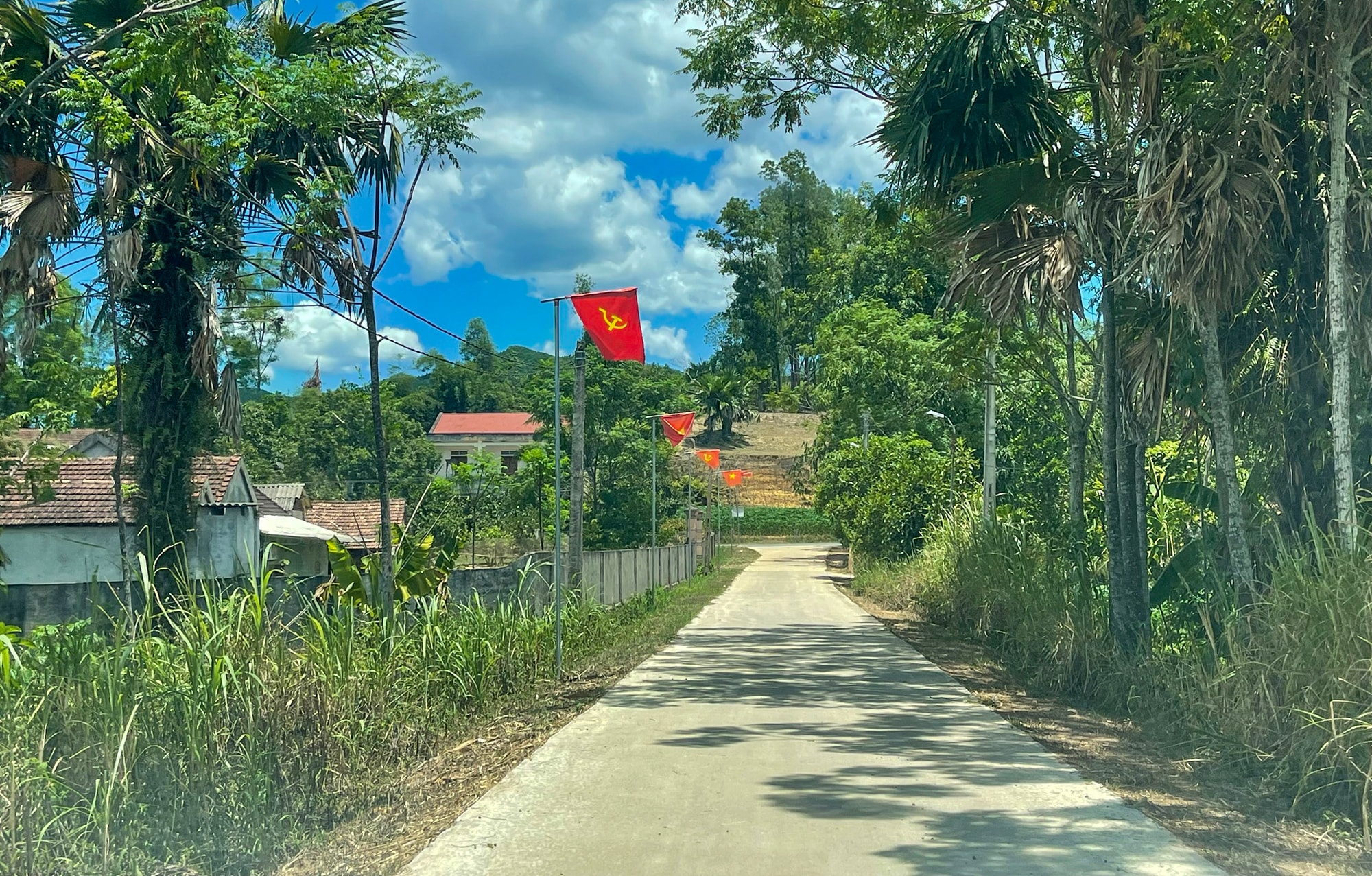
In 2021, 2 roads were mobilized to be built, each nearly 1km long; in 2022, 2.2km was built and in 2023, the Village Executive Committee has also developed a plan to complete 4 main roads 1.7km long and 5 branch roads leading to the paths about 1km long. In the first 6 months of 2023, Son Thinh village also collected 24 million VND in contributions to various funds; mobilized more than 300 million VND to build new rural areas. "Currently, the State has a plan to provide cement, but to do this, the village has agreed that each person will pay an additional 1 million VND (except for about 70 people who are exempted) to hire workers, buy sand and gravel to build roads. All have been unanimously approved with a rate of 100% agreement" - Mr. Hung emphasized.
Commenting on the diligent village cadre, with more than 30 years of dedication to his homeland, Mr. Nguyen Van The - Secretary of the Thanh Thinh Commune Party Committee said: Mr. Trinh Xuan Hung is an exemplary, enthusiastic and extremely dynamic cadre. After returning from the army, he took on many tasks in the village, regardless of his position or position, he always completed them excellently, Son Thinh village also became the village that always leads the emulation movement of the whole commune. Notably, on June 16, Mr. Hung also represented Son Thinh village to attend and receive a certificate of merit at the Conference summarizing 20 years of organizing the "Great National Unity" Festival, period 2003 - 2023.
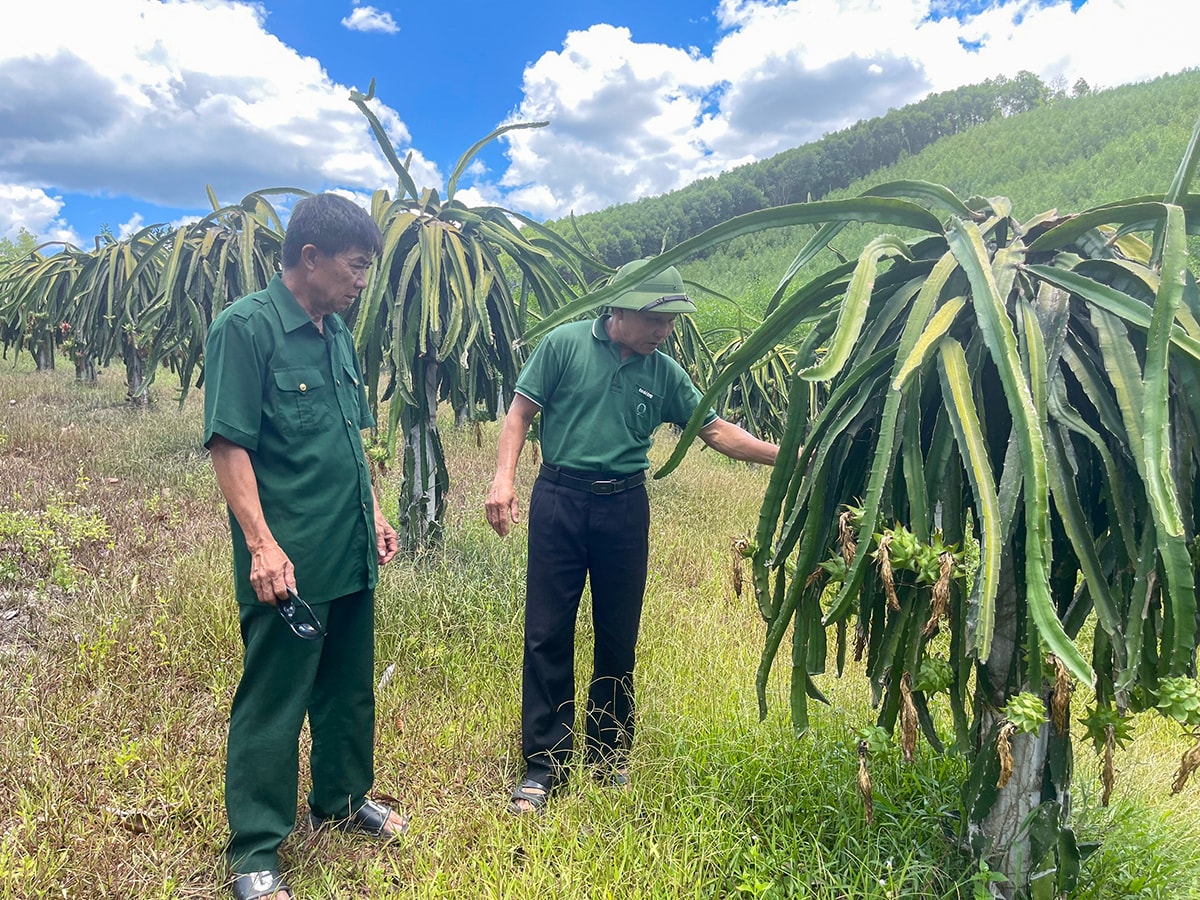
Saying goodbye and seeing us off to Ho Chi Minh road, Mr. Hung pointed to a land area of dozens of hectares and boasted, "In the near future, this land will be used to build a garment factory and a plant variety research center, at which time people's lives will be improved. But in the immediate future, it is certain that those working in the village will have a harder time, especially in propagating and mobilizing people to clear the land."
Although his steps are no longer as agile as when he was young, his eyes are no longer as bright, and countless difficulties are waiting ahead, we feel that in Mr. Trinh Xuan Hung, a heart full of enthusiasm in the journey of building his homeland is always overflowing. For him, nothing is difficult, as long as you are persistent, tenacious and dedicate yourself with all your heart, everything will be successful.
